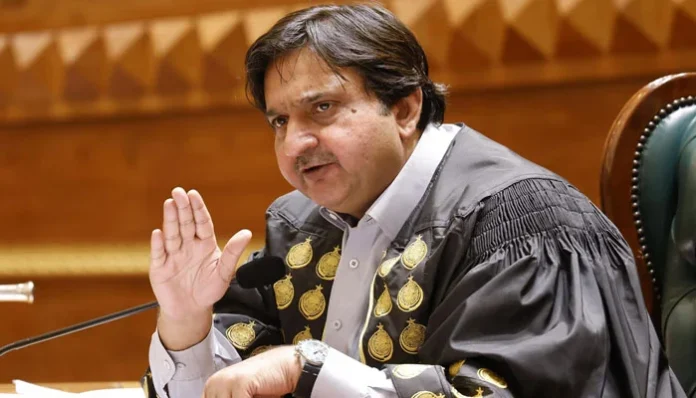Historic Parliamentary Reforms Introduced by Speaker Malik Ahmad Khan
By Asif Iqbal
Politics in the Punjab Assembly has always oscillated between power, policy, and public expectations. But since March 2024, a new chapter has been written when Speaker Malik Muhammad Ahmad Khan introduced a series of reforms aimed at bringing the people closer to the Assembly and making the parliamentary process more transparent. These measures have impacted not only the four walls of the Assembly but also public awareness, political attitudes, and the democratic structure at large.
One of the Speaker’s most remarkable initiatives was something rarely found on a politician’s agenda—directly inviting public suggestions. Citizens were encouraged to share ideas for making the Assembly more welcoming. This was not a token gesture; real changes followed. For instance, the “commando-style” uniforms of Assembly security personnel were replaced with softer, friendlier attire, ensuring that visitors felt no fear or intimidation when entering the building.
Punjab CM approves Rs100b interest-free loans for wheat farmers
In December 2024, Malik Muhammad Ahmad Khan presented a rare bill under Article 125 of the Constitution, granting the authority to pass a one-month budget to ensure that public services continued uninterrupted until the government was fully formed. Alongside this, historic amendments were made to the Assembly’s rules, including strengthening committee powers, ensuring mandatory representation of women, live-streaming of sessions, and introducing a code of ethics.
A milestone in parliamentary capacity building came with the establishment of the “Parliamentary Development Research Centre” (PDRC), which provides members with research support, policy analysis, and data to base legislation on scientific evidence. For the first time, a structured, paid internship program was also launched, giving young people direct exposure to the legislative process.
The Speaker’s focus on minority and women’s rights was equally notable. In August 2024, a special session on minority rights led to the creation of a “Minority Rights Caucus” to strengthen legislative and representational efforts for minority communities. The contributions of MPA Hina Pervaiz Butt were publicly acknowledged, particularly her role in the Punjab Women Protection Authority.
Perhaps the boldest move was the launch of the “Open Assembly Dialogue Series,” where issues such as local government and legislative reforms were debated openly. This transformed the Assembly from a closed political chamber into a hub of public participation.
Under Malik Muhammad Ahmad Khan’s leadership, the Punjab Assembly is undergoing a transformation. It is evolving from merely a legislative body into a symbol of transparency, inclusiveness, and public trust. If this momentum continues, the Punjab Assembly could very well become a model for other legislative institutions across the country in the years to come.





Comments are closed, but trackbacks and pingbacks are open.